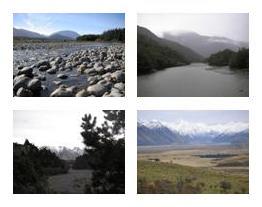Yo Ho Ho and Some Copyright Content
Anne Sweeney, president of the Disney-ABC Television group had this to say in an analyst call: "So we understand piracy now as a business model. It exists to serve a need in the marketplace specifically for consumers who want TV content on demand and competes for consumers the same way we do."
Combine this with YouTube's recent copyright arrangement with studios and record labels, announced the day before news of its sale to Google and you could almost say that my Golden Age of Content is at hand.
Since its beginning on the high seas, piracy has always driven innovation in every industry it affected. Ships became faster, sea lanes became safer, international maritime communications improved... You get the idea. Piracy trims fat. It serves to highlight which aspects of an industry need to be tightened -to the industry's ultimate improvement.
Pirate content really only comes to be considered 'pirated' when its original publisher is prevented from monetizing it. Almost all content producers offer at least some of their wares free of charge -it's good for brand image and it's good when profiling something new. The goal, then, for de-pirating pirate content is to provide an avenue for the products to be monetized. Witness the deal CBS has with YouTube: They will use the site's 'copyright identification' system to locate any pirated CBS content -but they won't necessarily have to pull it down. They have the option to leave it where it is and monetize it with contextual advertising. Brilliant!
Rather than fighting a losing battle with a component of the content industry that is always going to exist the big players have stepped up and acknowledged that they were under-delivering to a growing market: consumers -who were clearly fans of their product if they went online to look for it- who want content on demand. Analysts are almost universal in their belief that this is in fact the future of the television/online video industry and it is encouraging to see the Old World media companies starting to adapt their traditional business practices to suit new user behaviours rather than trying to bend, warp or threaten these new markets out of existence.
I don't think anyone has accurately estimated just how much advertising money is at the end of this rainbow. Viral video ads will ultimately provide the most-detailed, most-accurate platform for behavioural and contextual advertising. Imagine your client's TVC appearing in almost every relevant inbox across the First World with comments from trusted members of that demographic saying how great this video is? And it's content that consumers actually want. There are good times ahead.
So the next time you are walking down the street and you see a pirate -be nice. You will soon have a lot to thank him for. Maybe think about offering the parrot a cracker.
Combine this with YouTube's recent copyright arrangement with studios and record labels, announced the day before news of its sale to Google and you could almost say that my Golden Age of Content is at hand.
Since its beginning on the high seas, piracy has always driven innovation in every industry it affected. Ships became faster, sea lanes became safer, international maritime communications improved... You get the idea. Piracy trims fat. It serves to highlight which aspects of an industry need to be tightened -to the industry's ultimate improvement.
Pirate content really only comes to be considered 'pirated' when its original publisher is prevented from monetizing it. Almost all content producers offer at least some of their wares free of charge -it's good for brand image and it's good when profiling something new. The goal, then, for de-pirating pirate content is to provide an avenue for the products to be monetized. Witness the deal CBS has with YouTube: They will use the site's 'copyright identification' system to locate any pirated CBS content -but they won't necessarily have to pull it down. They have the option to leave it where it is and monetize it with contextual advertising. Brilliant!
Rather than fighting a losing battle with a component of the content industry that is always going to exist the big players have stepped up and acknowledged that they were under-delivering to a growing market: consumers -who were clearly fans of their product if they went online to look for it- who want content on demand. Analysts are almost universal in their belief that this is in fact the future of the television/online video industry and it is encouraging to see the Old World media companies starting to adapt their traditional business practices to suit new user behaviours rather than trying to bend, warp or threaten these new markets out of existence.
I don't think anyone has accurately estimated just how much advertising money is at the end of this rainbow. Viral video ads will ultimately provide the most-detailed, most-accurate platform for behavioural and contextual advertising. Imagine your client's TVC appearing in almost every relevant inbox across the First World with comments from trusted members of that demographic saying how great this video is? And it's content that consumers actually want. There are good times ahead.
So the next time you are walking down the street and you see a pirate -be nice. You will soon have a lot to thank him for. Maybe think about offering the parrot a cracker.
 New Zealand Media Blog
New Zealand Media Blog


